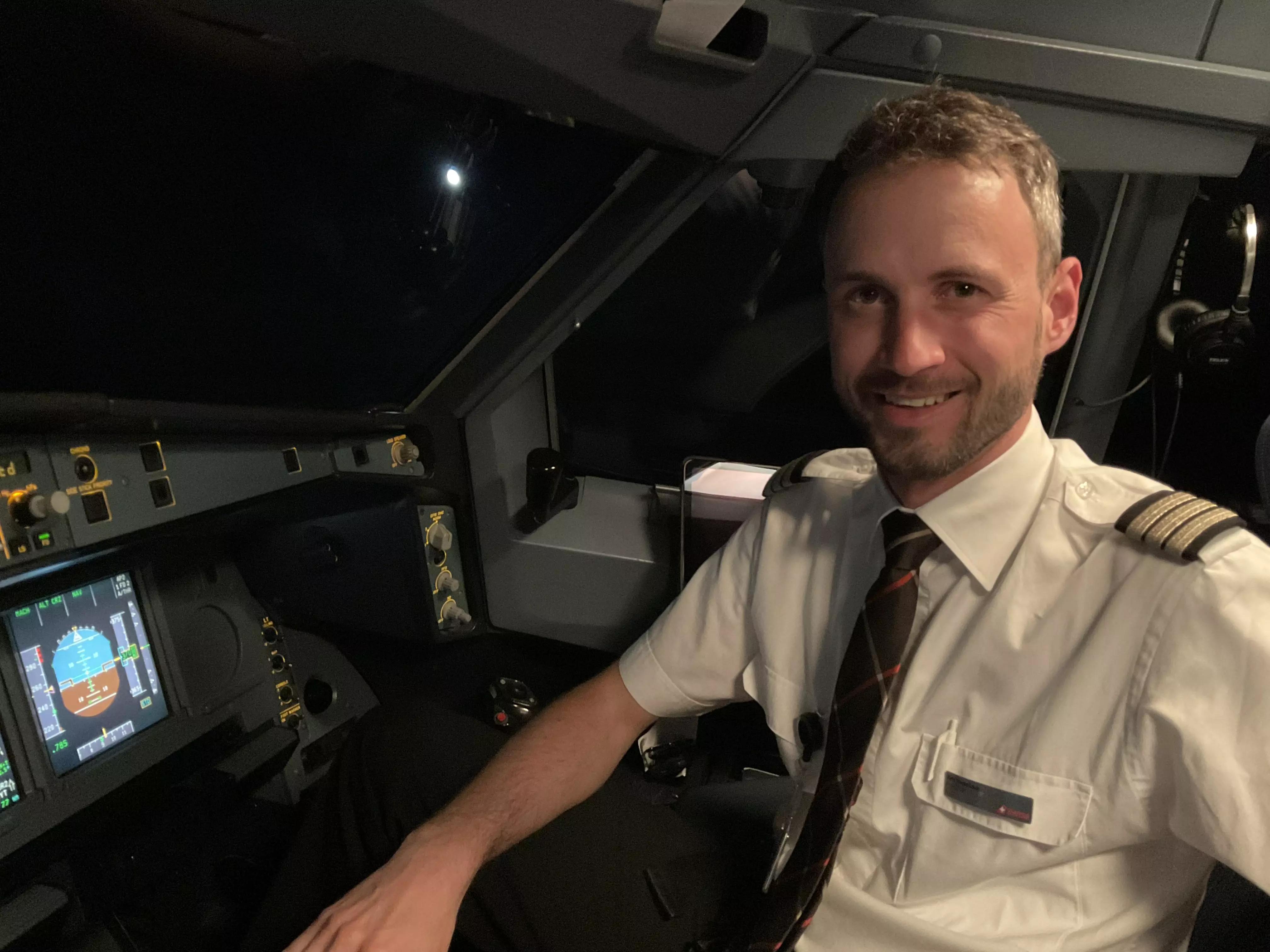A degree for those who want to understand aviation as a whole
Reto Wagenbach completed his aviation degree in 2012, making him part of the fourth cohort of the then young program at the School of Engineering. Today, he works as an airline pilot at SWISS. He appreciates his studies at ZHAW for providing him with a broad knowledge of aviation in general and the various processes behind it.

Before studying at ZHAW, Reto Wagenbach completed a training program as a constructor at the Training Center in Winterthur. "I became aware of ZHAW School of Engineering through recommendations from family and friends," recalls Wagenbach. "What convinced me about the aviation degree was primarily the dual educational pathway, which integrated pilot training alongside the academic curriculum," mentions Reto Wagenbach as one of the reasons that persuaded him to pursue aviation studies. Looking back, he fondly remembers his time as a student, saying, "While specific moments and anecdotes may fade over the years, I am very grateful for the friendships that were formed during that time and that I still maintain today."
Education as a generalist
Reto Wagenbach particularly appreciates about the aviation degree that it teaches you to "understand aviation as a whole." While many contents may have changed and evolved since his time of study, the degree offers a good education as a generalist, especially regarding the numerous processes involved in air traffic. "Especially during the times on the ground when the aircraft is being prepared for a new departure, a harmonious interaction of all involved interfaces is essential. The study helped me understand these processes and gain an understanding when things don't go as planned," says Wagenbach. "Whether it's ensuring the ordered amount of fuel is timely transferred into the aircraft's tanks, properly loading the cargo, or ensuring passengers board the aircraft satisfied thanks to the check-in and gate agents. Countless other processes happen in the background, and the groundwork for a successful flight from A to B is already laid much earlier." He found the module on "Aerodynamics and Flight Mechanics" particularly fascinating, as it covered everything about "how an aircraft flies."
Specialization for the future profession takes place after the studies, essentially "on the job." For Reto Wagenbach, it was clear that his goal was to be in the cockpit. Therefore, in the second semester, he completed the suitability assessment for airline pilots at SWISS and, after receiving a positive response, began his training as a commercial pilot at SWISS Aviation Training – SAT (now Lufthansa Aviation Training – LAT).
"In particular, during the times on the ground when the aircraft is being prepared for a new departure, a harmonious interaction of all involved interfaces is essential. The study helped me understand these processes and gain an understanding when things don't go as planned."
Reto Wagenbach, Graduate of the aviation bachelor's degree program
As a pilot, the career path is largely predetermined
For the past four years, Reto Wagenbach has been flying long-haul flights. Immediately after training, one starts as a co-pilot on short-haul flights, and after a few years, the transition to intercontinental flights follows. Currently, Reto Wagenbach flies the Airbus 330 and Airbus 340 aircraft types. "My next career step would be the so-called upgrading, where one is promoted to captain." All these steps follow the seniority principle: when a captain retires, everyone on the seniority list moves up one position, and the most senior co-pilot gets the opportunity for upgrading. However, one is not automatically appointed as a captain; "various hurdles must be overcome during the training," explains Reto Wagenbach. "A year ago, I also had the opportunity to enter instruction. Several days a month, I accompany pilots in the simulator who are undergoing retraining or undergoing the semi-annual emergency training."
Many challenges for the aviation industry
Reto Wagenbach currently assesses the job market prospects for pilots as very good, but he emphasizes that the pilot market is always closely tied to the current economic situation, as the past years have shown: "Currently, pilots are in high demand worldwide for various reasons," Wagenbach emphasizes. However, the entire aviation industry is under pressure. According to him, topics such as climate change, sustainability, and environmental protection will rightfully play a crucial role in the future. Reto Wagenbach also has a tip for all aspiring pilots: "As a pilot, you have a very focused career. It may make sense to pursue a second endeavor unrelated to aviation alongside your flying career."